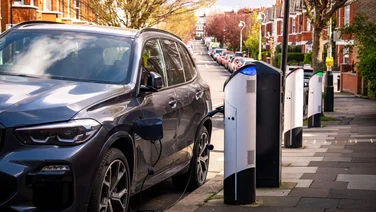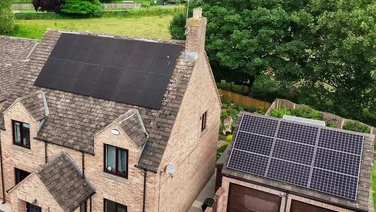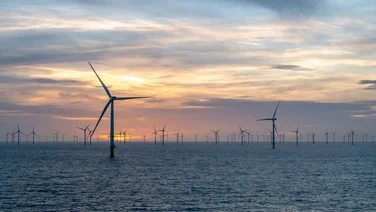We receive a small fee from trusted installers when you request a quote through our site. This helps us keep our content independent, well-researched and up to date – Learn more
Winter floods could become the norm in the UK as the planet gets warmer, scientists say.
Climate change is causing the UK to have wetter, warmer winters, with winter rainfall in England increasing by 27% since the pre-industrial period (late 19th century), according to a LinkedIn post published by Ed Hawkins, Professor of Climate Science at the University of Reading.
This is also reflected in the fact that in 2023, officially the hottest year on record, the UK experienced a record amount of rain in the period of July to December, according to the UK Centre for Ecology and Hydrology.
But why does a mild winter mean rainy weather?
According to Linda Speight, a hydrometeorologist at Oxford University, “a warmer atmosphere can hold more moisture so that when it rains, the rainfall is heavier and more likely to lead to flooding”.
It’s not just the buckets of rain that are contributing to flooding, so has our use of land.
The UK has built over most of its wetlands and marshes, but according to Dr. Christian Dunn of Bangor University, these provide protection from flooding by acting as natural “giant sponges”. He stressed the importance of preserving natural habitats and creating more wetlands to protect people from flooding.
The impact of flooding on the UK
The rain might have cleared for now as a cold snap begins, but the UK is still feeling the effects of being battered by four storms already this winter.
The latest, Storm Henk, caused widespread flooding in England and continues to affect areas along the River Trent and River Thames. According to the government’s Environment Agency at least two people were killed by falling trees and around 2,000 properties were flooded as a result of the storm.
Damage from floods currently costs the UK around £1.3 billion each year, according to the Energy and Climate Intelligence Unit (ECIU), but this figure could increase as storms get worse and become more frequent.
Unfortunately, it’s not just property and people that are affected by floods, our food supply can be too.
The latest round of flooding has already caused some UK vegetable crops to rot, according to The Times, raising the risk of shortages and price rises.
This could become a trend as storms and floods become more frequent, since around two thirds of Britain’s most fertile farmland lies in areas considered at risk of flooding.
How to prepare the UK for future winter flooding
The government needs to take steps to prepare the UK for a future where winter flooding is a common occurrence.
This means, firstly, investing in flood defences to prevent damage to life and property. The government has taken steps towards this, with the Environment Agency announcing a £5.2 billion flood prevention strategy in 2020. The strategy asserted that “for every £1 spent on protecting communities, we avoid around £5 in property damages”.
The Environment Agency’s strategy report also stresses that maintaining and supporting natural habitats should be part of flood management measures. As Dr Christian Dunn suggested in his Guardian interview, wetlands and floodplains can act as natural sponges for excess water.
Lastly, and most importantly, the UK can fight floods by making them less likely to happen in the first place. This means mitigating climate change by reducing global emissions.
UK emissions are reducing, but they’re not going down fast enough, according to the Climate Change Committee’s (CCC) latest Net Zero progress update in October 2023.
The CCC noted that it still had low confidence in the UK meeting its 2030 emissions targets. It suggested the government ramp up its efforts, in areas it’s lagging in. These include such as solar and wind power deployment, or reducing building emissions by replacing gas boilers with heat pumps and other low-carbon heating technology.






